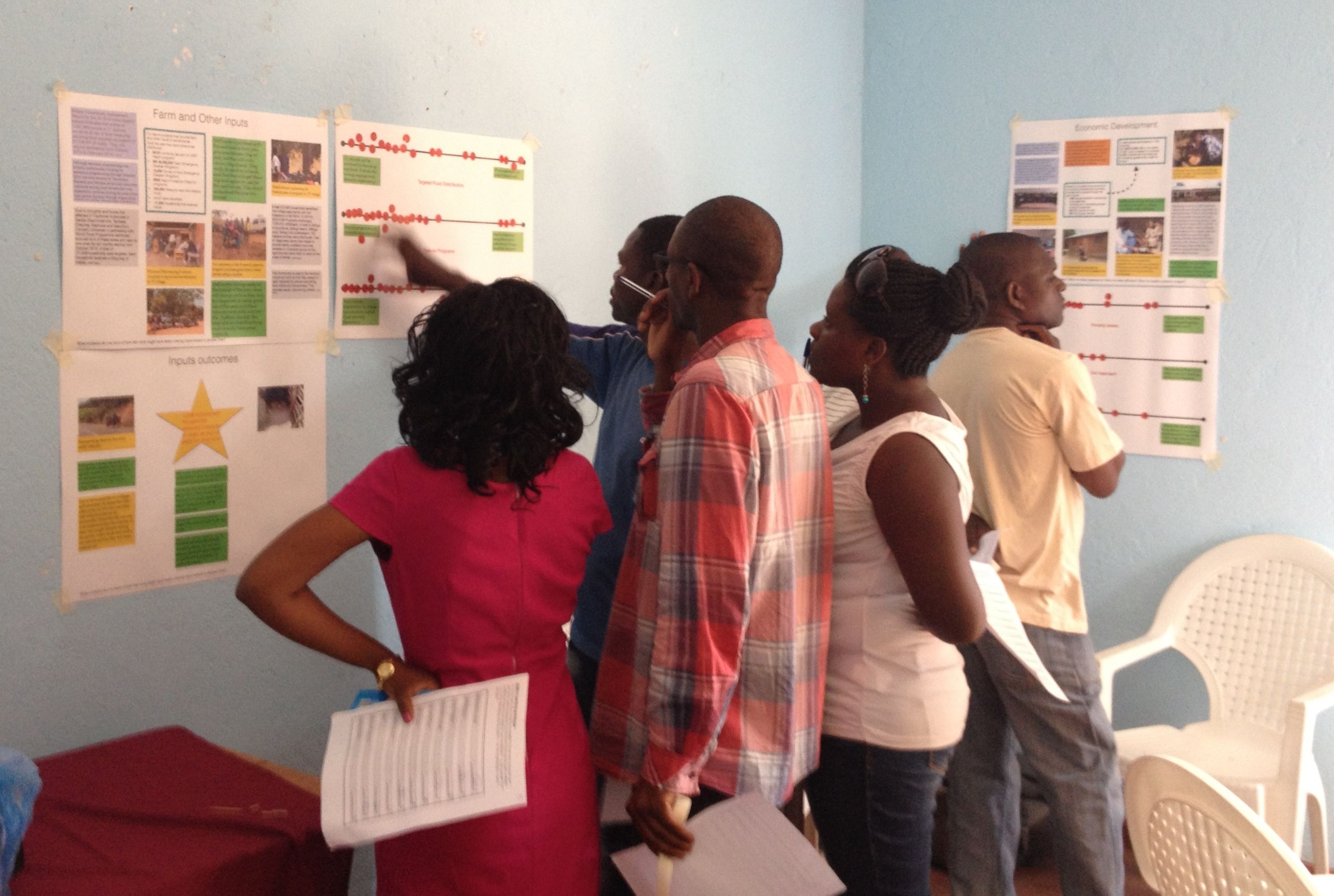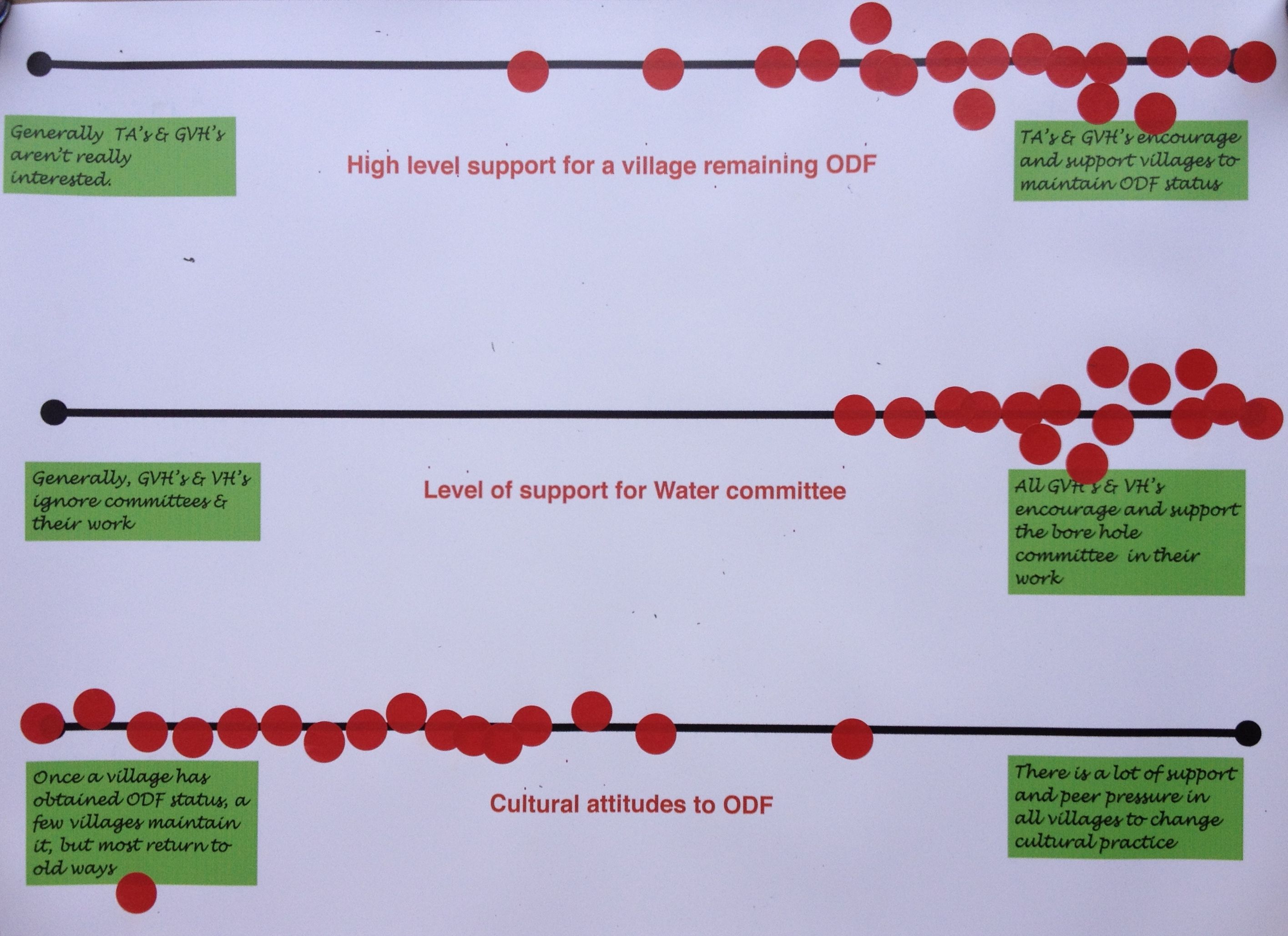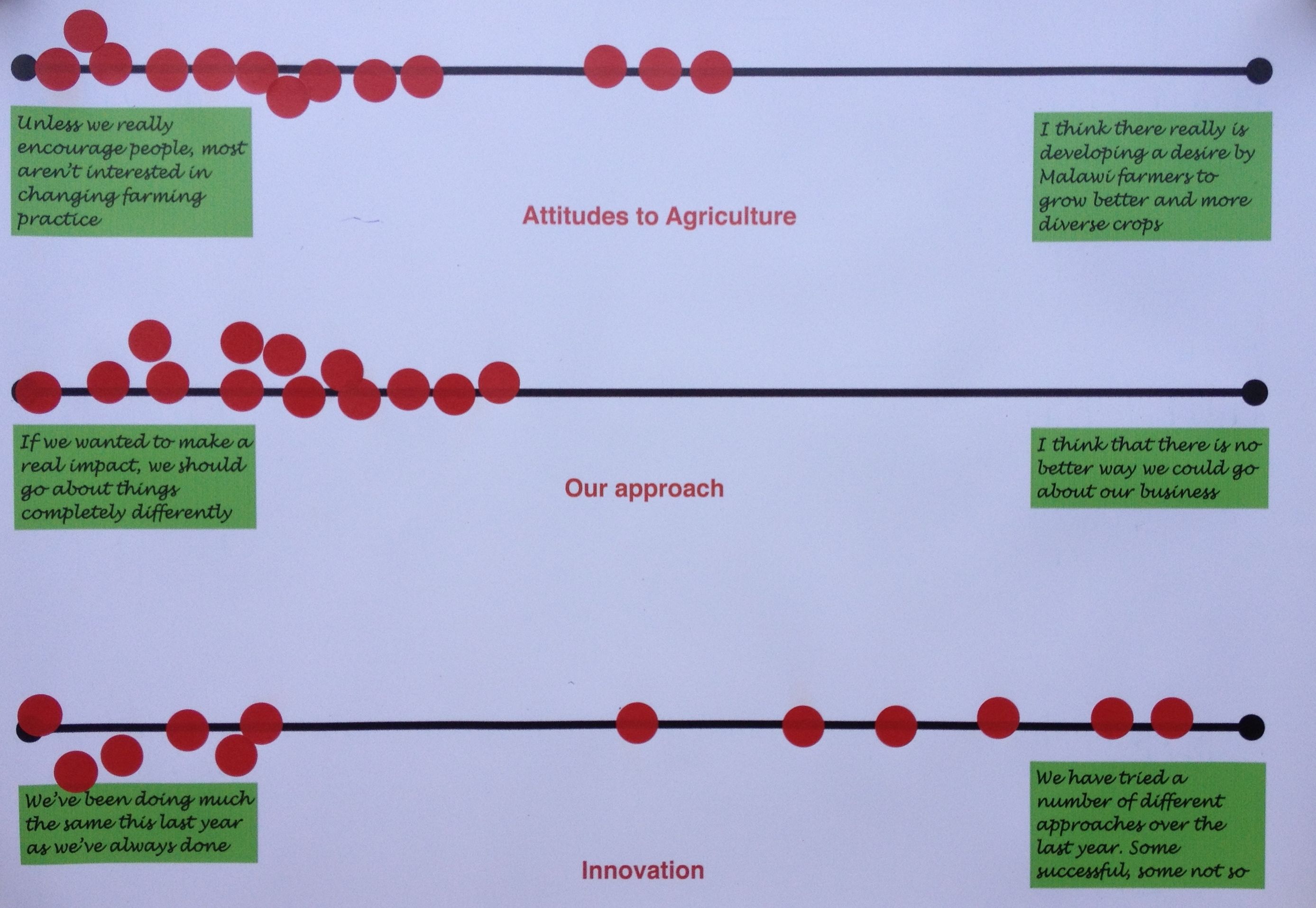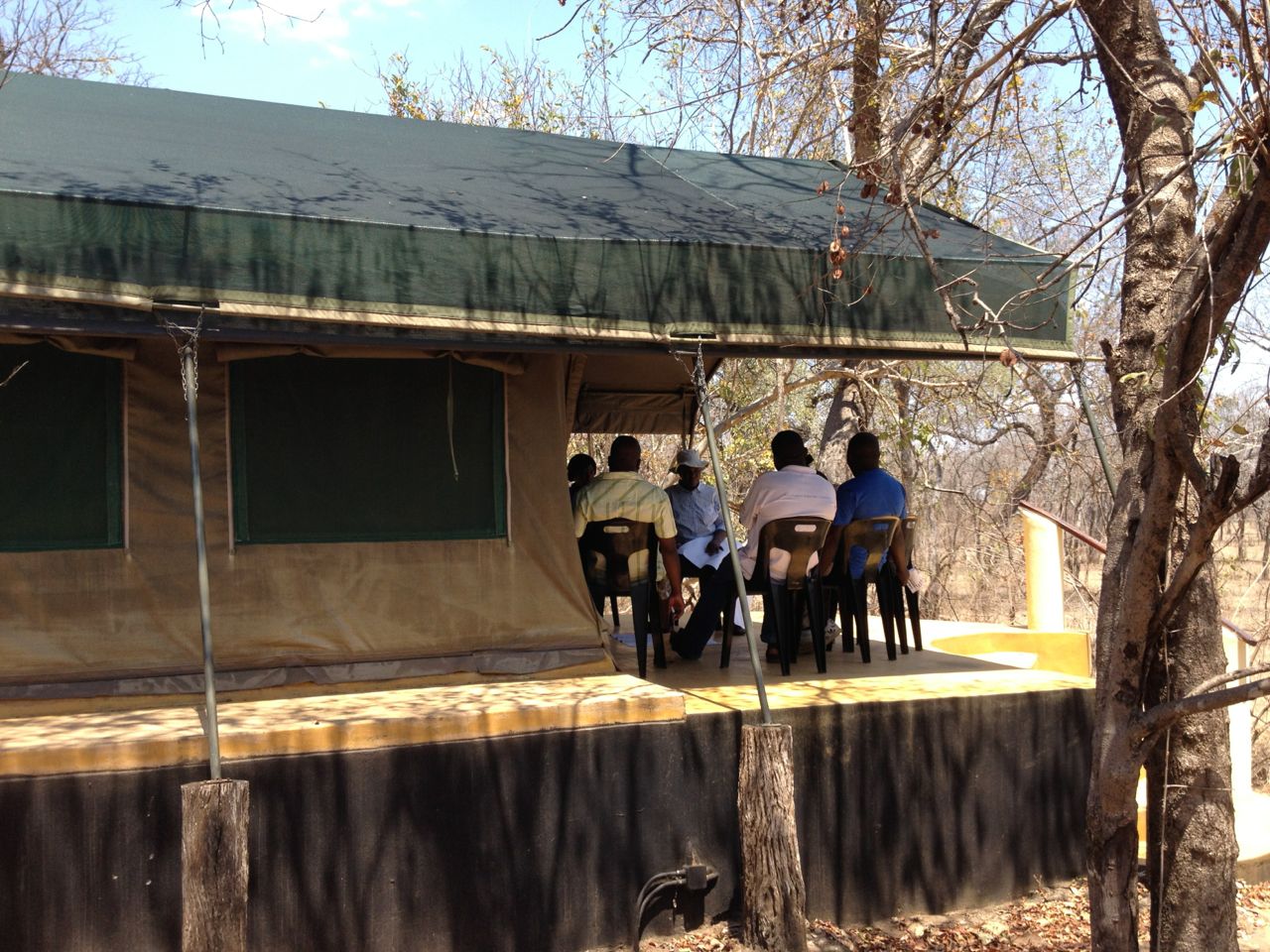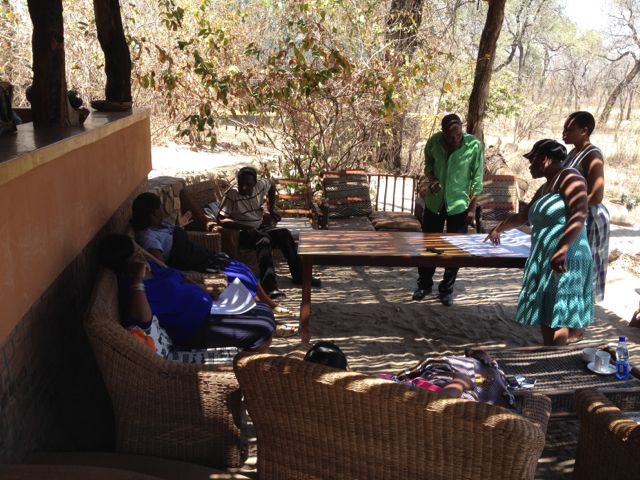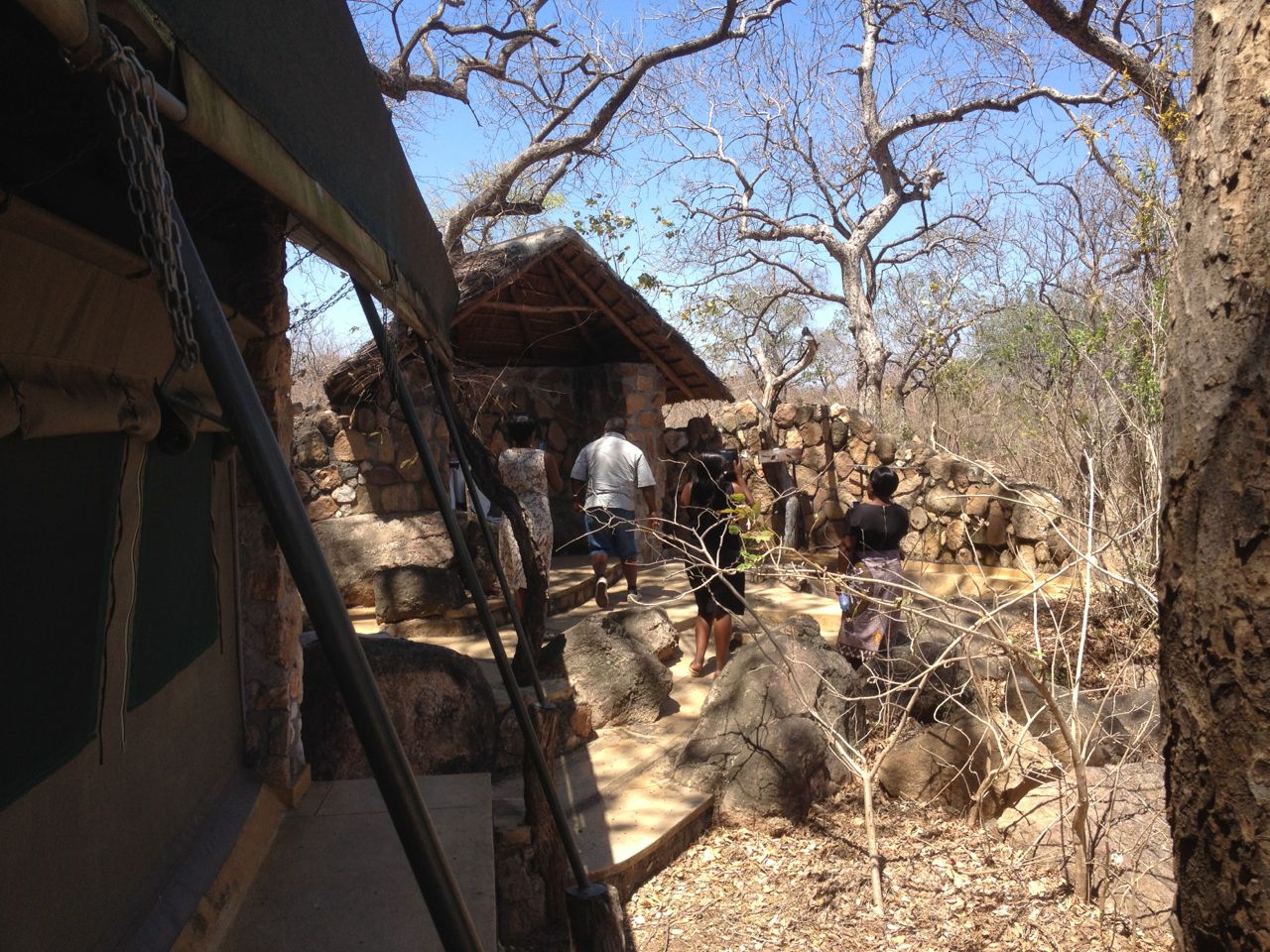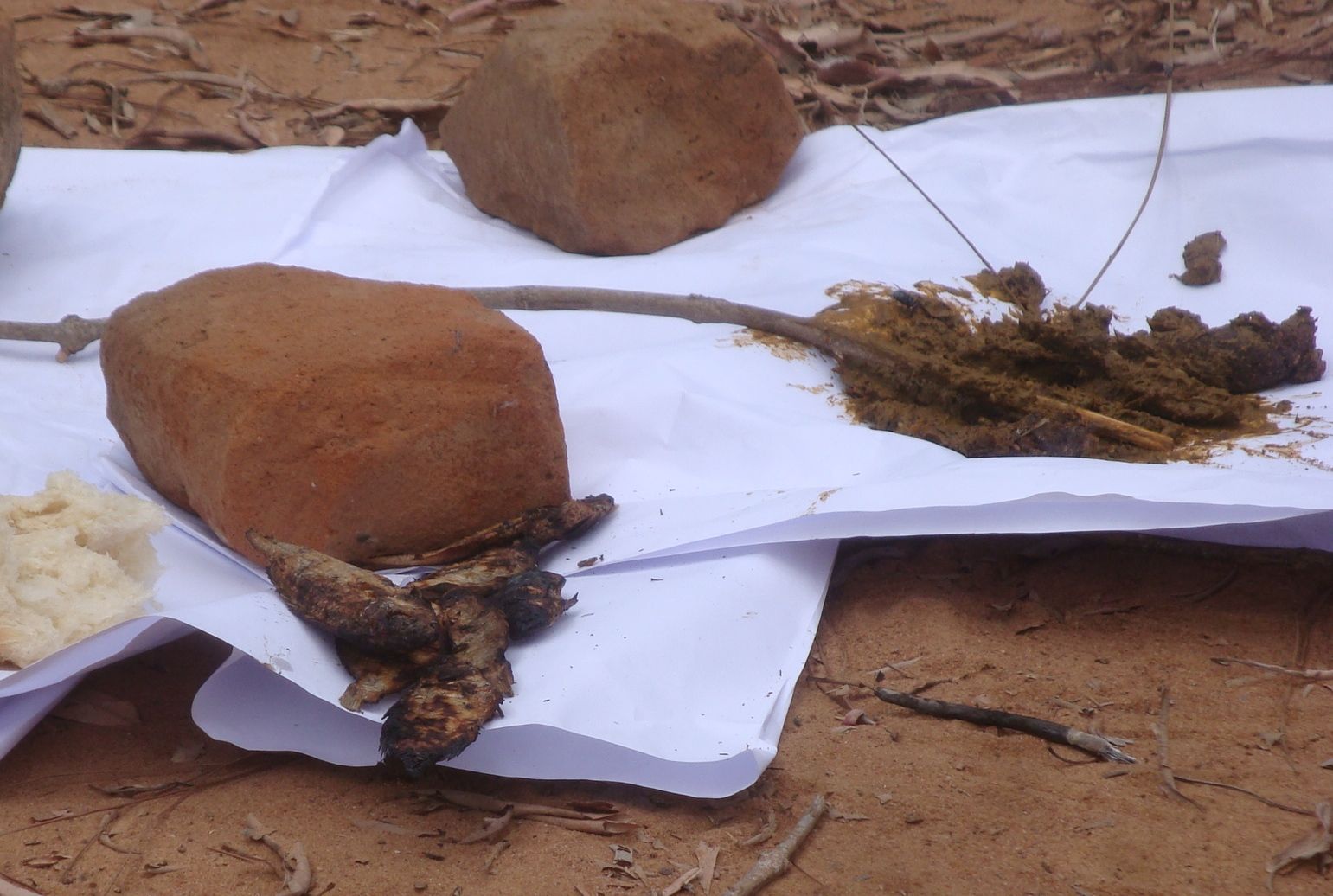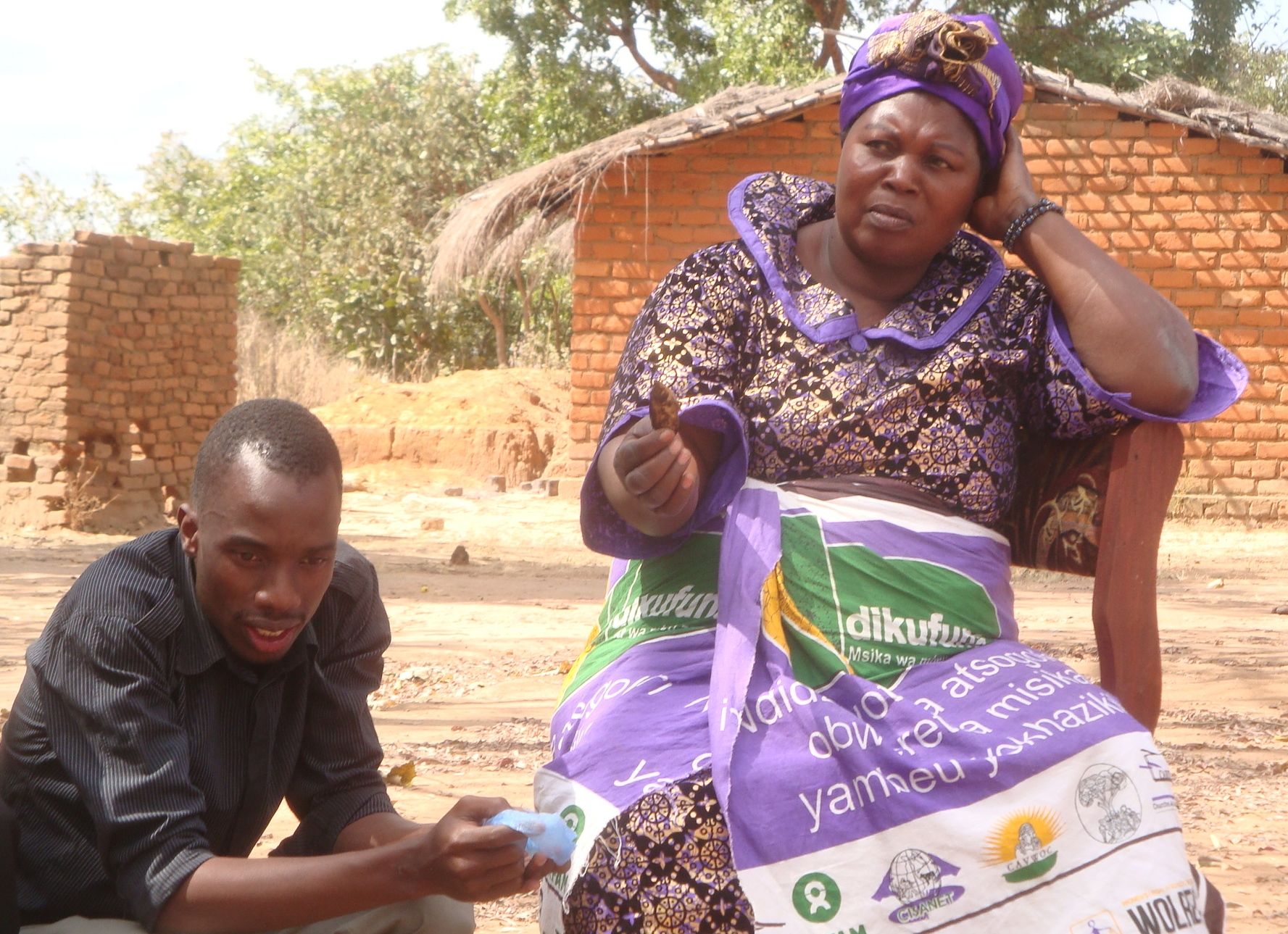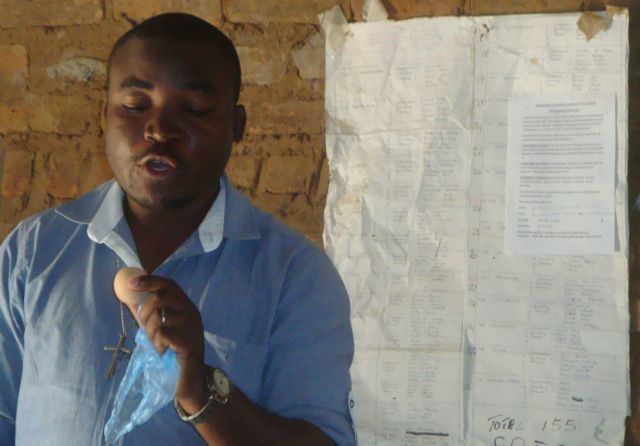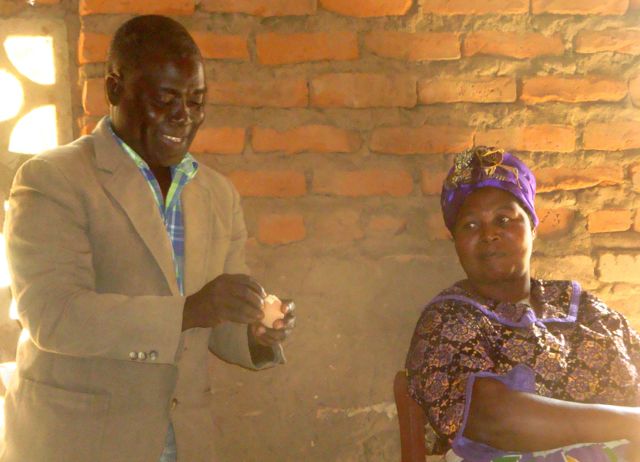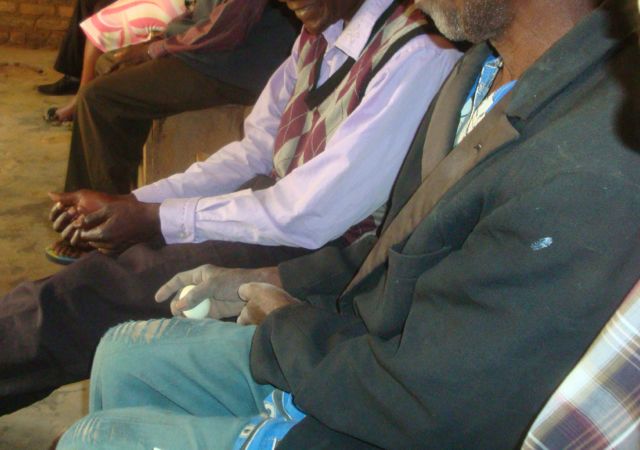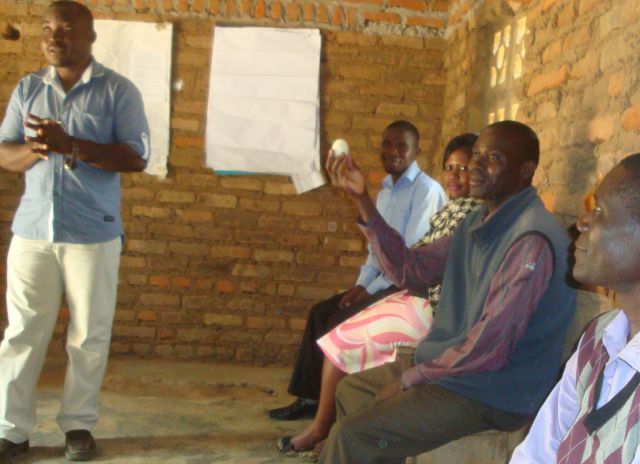Last week I co-facilitated a ‘learning workshop’ with Adam the new Deputy Country Director, for the four livelihoods projects in CU.
We structured the program through looking at four of the OECD measures of program success: Efficiency, Effectiveness, Sustainability and Relevence.
The definition of sustainability caused problems, for the OECD definition relates quite specifically to environmental sustainability during the project lifetime, but the common usage in the organisation defines it more as ‘legacy after the project is completed’. We went for the latter.
I introduced World Cafe as a technique for the session on effectiveness, causing shocked silence when I demonstrated how participants should write on the table cloths (they presumed that the white clothes were the venues, but relaxed when assured that we had bought them for the purpose).
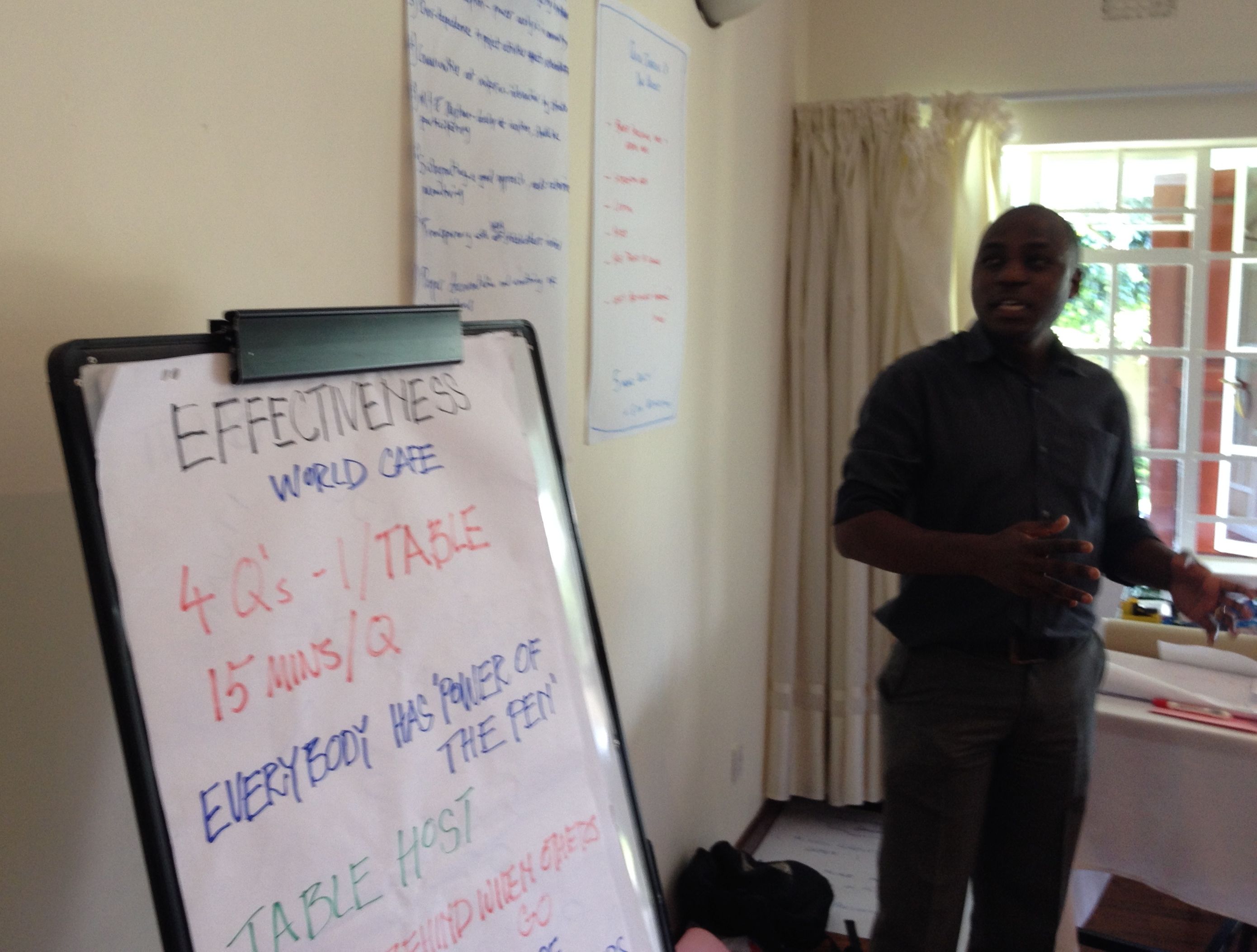
Tenthema (of the sugar out growers capacity building project) giving the discussion summary of the Effectiveness Successes World Cafe table.
At the end of the first day, Adam did an outside exercise of brainstorming and ranking peoples big learnings for the day. He was so impressed with World Cafe that he wanted to use it again on the second day for participants to explore how the top four learnings should be incorporated into new project proposals. I was really impressed with what participants came up with for one of these; and I particularly liked the last sentence of point 10, which I think sums it all up for any development organisation.

Adam directing participants on the brainstorm & ranking exercise used at the end of the first day
EMPOWERING LOAL STRUCTURES TO CARRY OUT MOST OF THE ACTIVITIES – LESS PARTICIPATION BY CU STAFF
-
CU to play an advisory/mentorship role in assisting beneficiaries or local organisations through awareness, sensitization, training instead of doing things for them
-
Identify local organisations/beneficiaries, social groups to work with
-
The identified local organisations need to participate in the need assessment e.g PRA (participatory research & analysis)
-
Need to assess their capacities e.g. financial, technical, social, literacy etc
-
Build local organisations capacity to address their identified gaps
-
Promote self assessment of local organisations
-
Provide strategic sub-grants to local organisations
-
Develop coherent M&E to track the management of sub-grants
-
Community Advocacy should be emphasized e.g CAI
-
Focus entry point should be through CBOs (community based organisations) as they are more focused on what they are doing. Will require change of CU system

